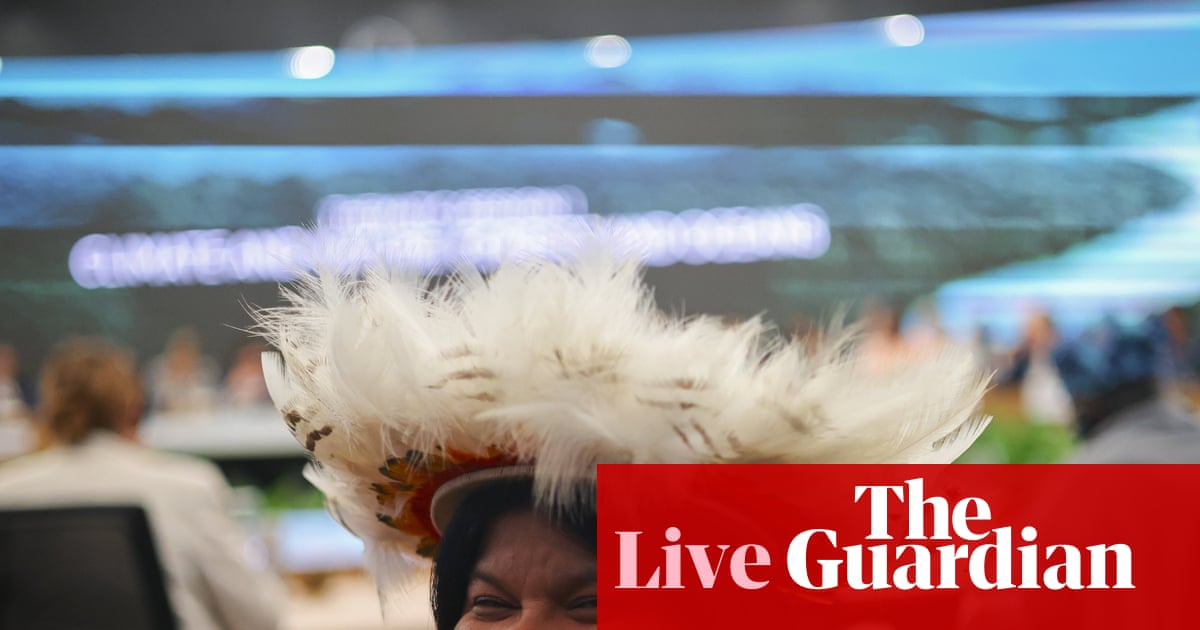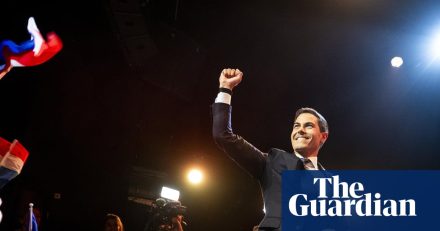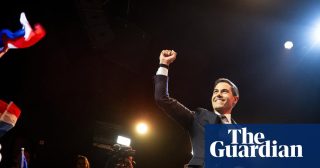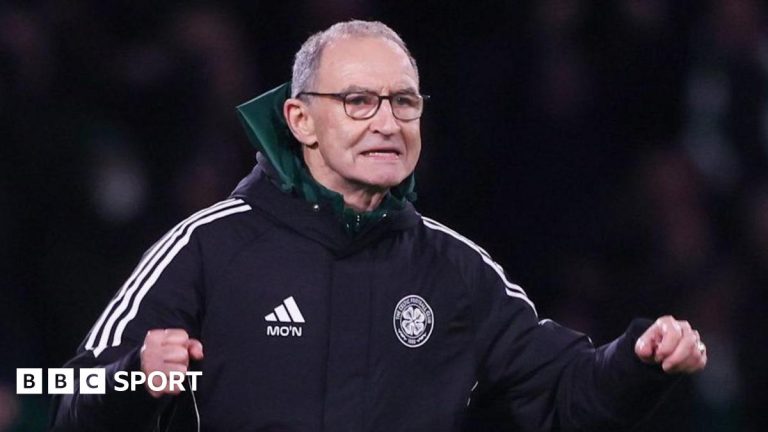The formal Cop30 agenda was adopted on Monday, allowing negotiations to start in earnest, but some delegates and campaigners warned key issues — especially climate finance and fossil fuels — risk being sidelined.
Brazil’s veteran diplomat André Corrêa do Lago, Cop30 president, opened the summit in Belém, promising this would be the “Cop of Truth” and urging urgency as climate disasters intensify. President Luiz Inácio Lula da Silva called for a roadmap to end dependence on fossil fuels, defended the Paris Agreement and stressed reducing deforestation and centring Indigenous and local communities in climate action.
Adoption of the agenda avoided the protracted “agenda fights” that have delayed recent conferences, but organisers combined or moved several items into new workstreams and an “action agenda” that can advance without full consensus. That raised concern about where discussions on finance, the Dubai-era commitment to a fossil-fuel transition, and how to remain within 1.5C will be handled. Mohamed Adow of Power Shift urged that saving the UN multilateral process must go hand in hand with concrete steps: more finance for vulnerable countries and a just energy transition to renewables.
Developing-country delegates and NGOs warned the New Collective Quantified Goal (NCQG) on finance — which aims to mobilise $300bn annually by 2035, with broader private-sector support toward $1.3tn — was not adequately reflected under formal items. Debbie Hillier of Mercy Corps said the phrase “agenda fight” downplayed the stakes for countries seeking clarity and accountability on finance. Fiona Harvey reported Brazil would hold intense presidency consultations through Wednesday to clarify how the agenda will operate.
Opening plenary speakers denounced the absence of the United States. Tuvalu’s climate minister Maina Vakafua Talia said the US withdrawal from the Paris Agreement and the administration’s denial of climate science displayed “a shameful disregard for the rest of the world.” Pakistan’s climate secretary Aisha Humera called the climate crisis the greatest human-rights violation of our time. The US had no official delegation on day one and few US media outlets were present.
Pressure for legal and rights-based action intensified after the International Court of Justice’s July judgment elevated obligations to protect the climate. A group of 25 UN special rapporteurs issued a joint statement urging “full compliance” with international law, warning that failure would undermine the credibility of the Cop process. They called for meaningful outcomes on mitigation, finance and technology cooperation, with explicit reference to fossil fuels and subsidies as drivers of harm to human rights.
Campaigners also reiterated long-standing calls to curb fossil-fuel industry influence at UN talks. Research published ahead of Cop30 showed thousands of fossil-fuel lobbyists have attended recent Cops, representing hundreds of companies and trade bodies; critics argue this corporate presence has delayed meaningful action. Adilson Vieira of the Amazonian Work Group described a “corporate capture” of the process and urged the removal of polluters from negotiation spaces.
Climate justice NGOs demanded tangible results rather than more pledges. Climate Action Network (CAN) called for safeguards for workers in polluting industries as part of a just transition, stronger protection for impacted communities, and scaled funding for the Loss and Damage Fund established at Cop28. So far, only modest sums have been pledged to that fund; campaigners said it remains largely empty and urged developed countries to deliver finance at scale.
The human cost of inaction was illustrated by Jamaica’s recent devastation from Hurricane Melissa. UnaMay Gordon, former Jamaican director of climate change, said Melissa had become “the world’s symbol of climate devastation” and demanded accountability and payments from major emitters for catastrophic losses, noting that striving for 1.5C has always been about survival for vulnerable nations.
Scientists and forest advocates highlighted the importance of protecting tropical forests. A new assessment found the Congo Basin absorbs roughly 600 million tonnes more CO2 annually than it emits, making it the planet’s most carbon-beneficial rainforest, though its sink capacity has declined due to mismanaged deforestation. At Cop30 a group led by Gabon and France backed a plan to raise $2.5bn by 2030 to protect the Congo Basin. Separately, a dozen countries pledged to recognise land rights across 80 million hectares of tropical lands by 2030 to secure Indigenous and Afro-descendant communities’ tenure and help stem deforestation.
Soil and agriculture drew attention as overlooked solutions. A UN-backed analysis by the Save Soil movement found 70% of countries do not include soil as a mitigation tool in their nationally determined contributions (NDCs). Restoring agricultural soil health could sequester a significant share of the emissions reductions needed to limit warming and reduce fertilizer-related emissions substantially, yet soils rarely appear in mitigation commitments.
Media coverage at Cop30 has also been a topic of debate. The media centre in Belém became busy after a slow start, but US TV networks were notable by their absence. Mark Hertsgaard of Covering Climate Now called it a “tragic abdication” by US broadcasters, arguing that newsroom priorities and corporate pressures — including cutbacks and profit demands — have reduced climate reporting capacity at the very moment coverage is most needed. Many climate reporters privately want to attend but face budgetary restrictions imposed by managers.
On the ground in Belém, the rainforest host city delivered mixed logistics: heavy tropical rainstorms pounded the conference centre, parts of the venue were uncomfortably warm, and some food vendors ran out of vegetarian options despite calls from activists to serve plant-based meals. First lady Rosângela Lula da Silva (Janja) apologised for the heat and presented Local Adaptation Champions awards, telling the summit it must be “the Cop of implementation, the Cop of truth” and centre women and community-level action.
Brazil’s presidency emphasised adaptation and integrating climate into economic and job-creation policies, saying the Cop should “listen and believe in science.” Mukhtar Babayev, president of Cop29, urged delivering on the Baku finance goal from last year and for developed countries to lead on funding.
At the same time, critics flagged recent energy diplomacy that runs counter to the summit’s aims: environmentalists condemned an agreement allowing ExxonMobil to lead a large fossil-gas exploration project in Greek waters, calling it out of step with science and risky for biodiversity and tourism.
Civil-society voices at Cop30 demanded an end to “flashy” pledges and called for binding actions, including a clear plan to phase out fossil fuels. Greenpeace and other NGOs pushed for finance, transparency, fossil-fuel phase-out commitments, and protections for environmental defenders.
Subnational actors from the US — state and local leaders and cities — announced plans to attend despite the federal government’s absence, with more than 100 US state and local officials expected to promote local climate initiatives and partnerships.
As negotiations begin, participants face the task of turning the adopted agenda into deliverable outcomes on mitigation, finance, adaptation and loss and damage, while grappling with the political reality of absent major emitters, powerful fossil-fuel interests, and an urgent legal backdrop set by the ICJ ruling. The presidency’s handling of the agenda, the fate of finance commitments, protections for vulnerable communities, and the influence of the fossil-fuel industry will be pivotal to whether Cop30 is remembered as implementation-focused or business as usual.






